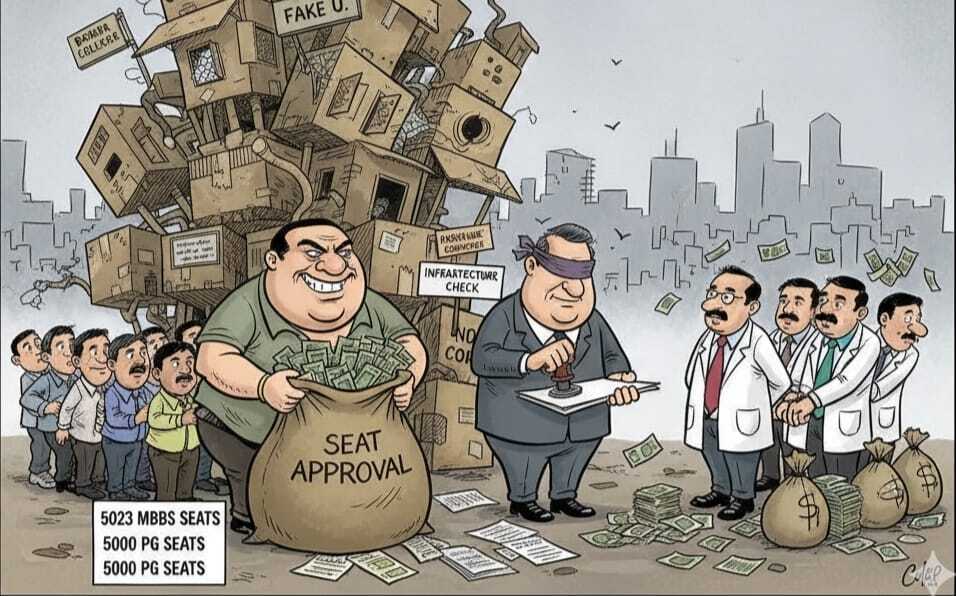Article Today, New Delhi:
The Union Cabinet, chaired by Prime Minister Narendra Modi, has approved the addition of 5,000 postgraduate and 5,023 MBBS seats in government medical colleges. The government said the move aims to address the shortage of medical professionals in remote areas.
Quality Under Question
The decision has drawn sharp criticism from health experts and education analysts. They argue that expanding seat numbers without strengthening basic infrastructure could undermine the quality of medical education. Currently, the country already has over one lakh medical seats, raising doubts about whether further expansion alone can improve outcomes.
Infrastructure and Faculty Gaps
Reports from the National Medical Commission inspections have revealed gaps in facilities and shortages of teaching staff in several government and private colleges. Allegations have surfaced that political pressure and corruption have led to approvals for institutions that lack the required standards. The Central Bureau of Investigation has also initiated probes into bribery cases linked to seat approvals, leading to arrests of some officials and doctors.
Official Claims of Growth
According to government data, India now has 808 medical colleges, with MBBS seats rising to 1,23,700. In the past decade, 69,352 MBBS seats were added, reflecting 127 per cent growth. Postgraduate seats also registered a 143 per cent rise. The government maintains that such expansion is necessary to meet healthcare needs in underserved regions.
Persistent Challenges
However, ground realities indicate a different picture. Many rural areas continue to face a shortage of doctors despite the steady rise in seats. Experts point out that medical graduates are often reluctant to serve in remote locations, leaving the core issue unresolved. Without parallel measures to strengthen training quality and encourage rural service, the numerical increase in seats may not translate into improved healthcare access.
Outlook
Analysts caution that focusing solely on seat expansion, while ignoring faculty availability and clinical training standards, could pose long-term risks for India’s medical system. They stress that improving the quality of education and ensuring equitable distribution of doctors must accompany any quantitative growth in medical seats.



